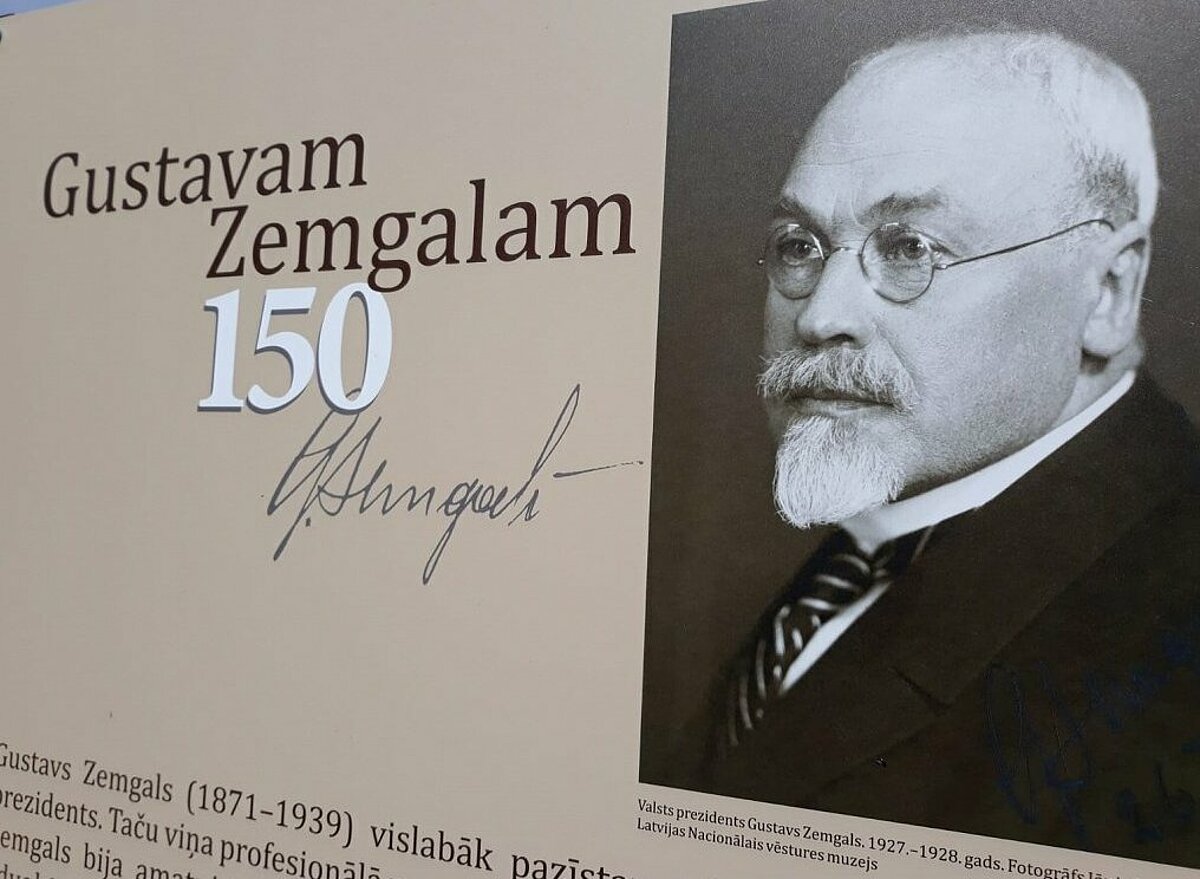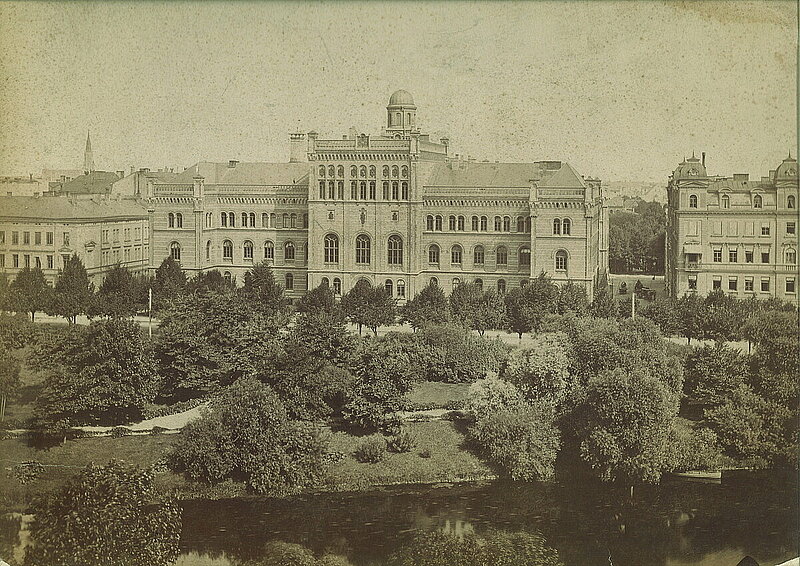
The essay contest for young adults was a continuation of the events related to the 150th birthday of Gustavs Zemgals (1871-1939), an outstanding public figure and politician, and the second President of Latvia. The contest aimed to arouse the interest about president Gustavs Zemgals and his contemporaries in young people, inviting them to think about the values that the creators of the Republic of Latvia defended and certified during their lifetime.
The idea of the competition was cherished by the descendants of Gustavs Zemgals. They also raised a prize fund of 1000 EUR with the aid of the University of Latvia Foundation. The competition was organized by the National History Museum of Latvia in cooperation with the UL Foundation, History and social science teacher association, and the Faculty of History and Philosophy of the University of Latvia.
Addressing the participants of the closing event of the essay contest, Martins Andersons, grandson of Gustavs Zemgals said: “Each generation has its challenges and tasks in the story of our country. My grandfather and his contemporaries had to experience the birth, defeat and establishment of the democracy in Latvia. Their children experienced its loss; but your parents more than 30 years ago encountered its reborn. What is the task of your and my generation? In my opinion, we have a duty to protect the democracy in Latvia to pass it to the next generations. Considering the current events in Ukraine, a country that recently celebrated its 30th anniversary of restoration of its independence, we can see this generation’s responsibility very clearly. Democracy does not happen with a single solemn act or photograph. Democracy is a process, a sacred, precious thing that must be nurtured and protected at all times.”
A total of 66 essays from 44 schools in Latvia were submitted to the contest. Participants from Jelgava stood out: students from Jelgava Spidola State gymnasium submitted 9 essays, Jelgava 4th Secondary school - 3 essays, and one essay was received from both Jelgava 5th Secondary school and Jelgava Music Secondary School. 15 works were also received from various schools in Riga. Several essays were sent from Valmiera State Gymnasium, Andrejs Upitis Skriveri Secondary School, and Riga State German Gymnasium. In general, these essays were sent from different schools in all regions of Latvia: Rezekne, Limbazi, Zasa, Livani, Cesis, Madona, Riebini, Aglona, Daugavpils, Ozolnieki, Rekava, Ergļi, Akniste, Talsi, Broceni, Ogre and Liepaja. The authors of the essays include 57 high school students and nine 9th grade students.
When evaluating the submitted works, the jury praised the authors' ability not only to work with historical literature and sources, but also to substantiate their thoughts and judgments. The best works were quite different from each other in approach and content, but at the same time proved the young people's ability to find the proper words to express their message.
The main prize (500 euros) was given to the winner Marta Annija Mažeika, a 10th grade student at Akniste Secondary School, second place, 2nd place (300 euros) went to Kristīne Bumbiere, a 12th grade student at Jelgava Spidola State Gymnasium, and 3rd place (200 euros) - to Madara Sirvide, 9th grade student in Ozolnieki Secondary School. Congratulations to the winners!
The authors of the 17 best essays will be invited to a closing event in May. All participants of the essay competition together with teachers or family members will be welcomed at the Latvian National Museum of History and will receive a gift prepared by the museum.
The organizers of the competition thank all the participants and teachers, as well as parents, who supported the young people in the creative process of learning and understanding history!
About the UL Foundation
Since 2004, the University of Latvia Foundation has been providing an opportunity for patrons and partners to support both UL and other leading Latvian universities, thus investing in the future of Latvia. The priorities of the Foundation are to support the most outstanding students and researchers, to contribute to the creation of a modern learning environment, and to the construction and reconstruction of university buildings.

 Academic Centre
Academic Centre